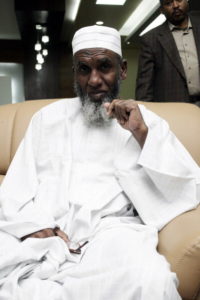
The Pentagon issued a news release concerning Noor Uthman a prisoner assigned to Guantanamo Bay military detention site in Cuba.
Uthman is an individual who the Joint Task Force Guantanamo counter-terrorism analysts describe as being a senior member of al Qaida‘s leadership cadre. Noor Uthman Muhammaed was captured in Abu Zubaydah’s house in Faisalabad on March 24, 2002, along with Abu Zubaydah, Sufyian Barhoumi, Ghassan al-Shirbi, Jabran Al Qahtani, Abdul Zahir and several other suspects. Four of the other captives captured in that house were to face charges before the Guantanamo military commissions, in 2005 and 2006.
Abu Zubaydah, it must be understood was involved in most major terror plots against the US for almost a decade, including the 2000 Millennium plot, and a planned 2002 attack against the US using a radiological (“dirty”) bomb.
Zubaydah once described the White House, the Statue of Liberty and the United Nations as desirable targets…
Charges were initiated against Noor Uthman Muhammed on May 23, 2008. Noor was transferred to Sudan on December 19, 2013.
The release read:
“On Jan. 9, 2015 pursuant to his authority under 10 U.S.C. § 950b, the convening authority for military commissions disapproved the findings and sentence, and dismissed the charges in the case of United States v. Noor Uthman Muhammed.
Muhammed, a native of Sudan, pled guilty in February 2011 at a military commission to providing material support for terrorism and conspiracy to provide material support for terrorism. A panel of military officers sentenced him to fourteen years confinement. In accordance with the provisions of a pretrial agreement, a previous convening authority granted a deferment of confinement effective Dec. 3, 2013.
Muhammed was repatriated from Guantanamo Bay, Cuba, to Sudan on Dec. 19, 2013.
Subsequent to his commission proceedings, decisions by the D.C. Circuit Court of Appeals in separate commissions cases established that it was legal error to try the offense of providing material support for terrorism before a military commission. The decisions of the D.C. Circuit are binding on commissions cases and the convening authority’s action to disapprove the findings and sentence in Muhammed’s case is required in the interests of justice and under the rule of law.”
Source: Pentagon

